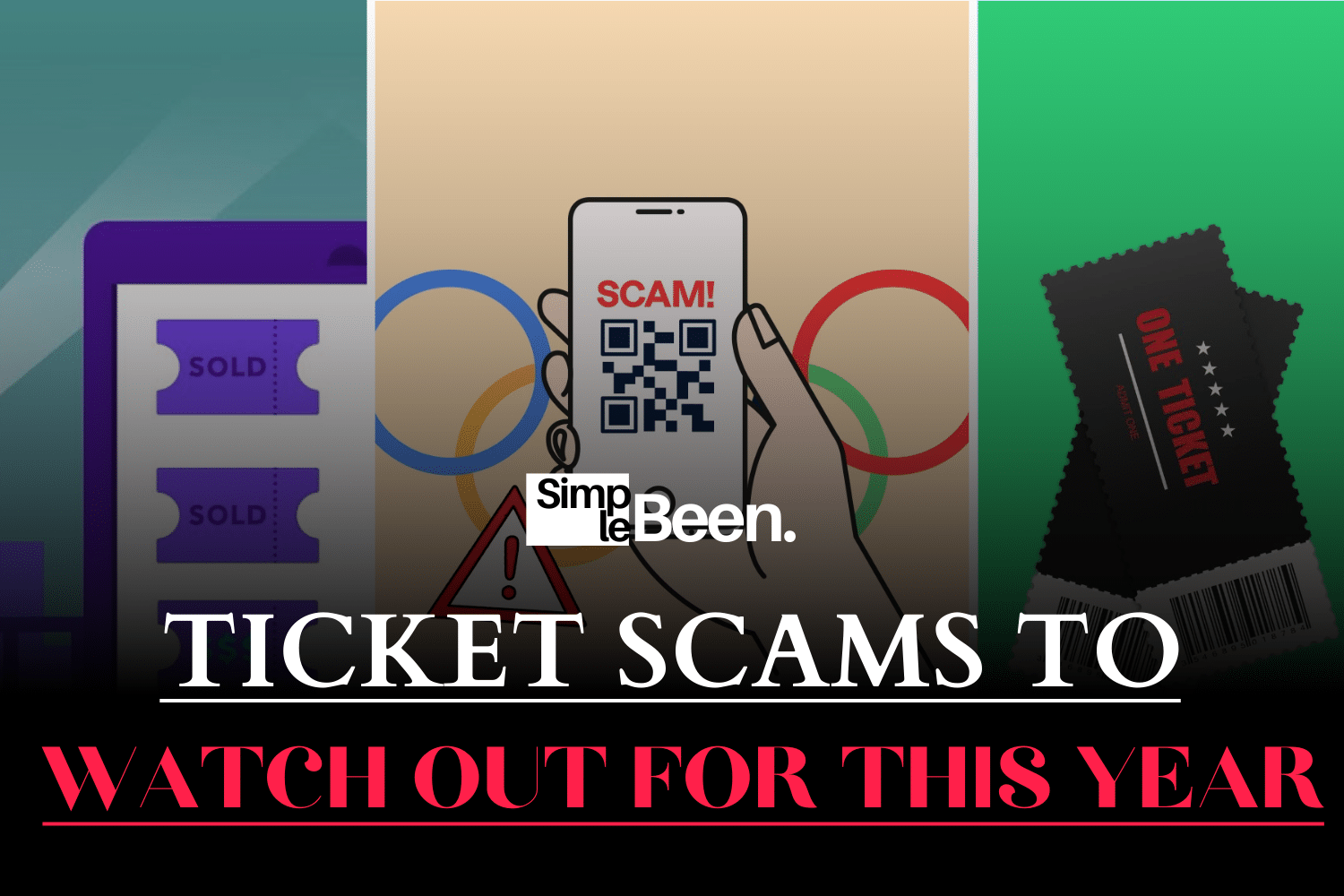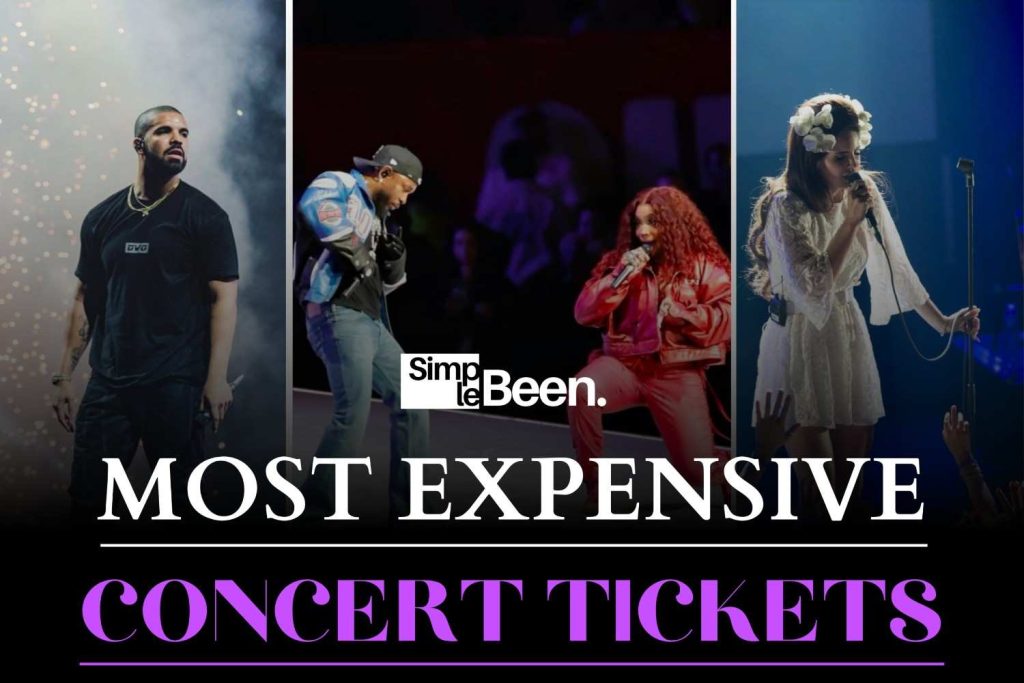Ticket scams are getting sneakier every year, and even the most cautious buyers can fall victim to these clever schemes. Whether you’re grabbing tickets for a concert, sports event, festival, or theater show, scammers are out there looking to make a quick buck.
In this post, we’ll walk you through the most common ticket scams to watch out for in 2025 and give you practical tips to protect your hard-earned money. Stay one step ahead and learn how to spot red flags before you click that “Buy” button!
How To Tell If Someone Is Scamming You For Tickets?
Spotting a ticket scam isn’t always easy, but knowing the warning signs can save you from a costly mistake. Here’s how to tell if someone is trying to scam you:
- Unbelievable Deals or Prices Too Good to Be True: Scammers often lure victims by selling high-demand tickets at shockingly low prices. If it feels too good to be true, it probably is.
- Pressure to Buy Immediately: Scammers create a false sense of urgency by claiming tickets are about to sell out. Genuine sellers won’t rush you to make a payment.
- Inconsistent or Vague Information: Watch out for sellers who dodge questions about the event, seating details, or ticket delivery. Legitimate sellers provide clear, detailed information.
- Requests for Unsecure Payments: Be cautious if asked to pay via wire transfer, prepaid cards, or cryptocurrency; these payment methods are nearly impossible to trace or recover.
- No Proof of Purchase or Ticket Confirmation:
Legitimate sellers can provide proof of purchase, order confirmation, or screenshots of the ticket. If they can’t, it’s a red flag.
- Misspelled or Fake Website URLs: Scammers create fake websites that look nearly identical to official ticketing platforms. Always double-check the URL before entering payment details.
Stay alert, and don’t let the excitement of scoring great seats cloud your judgment.
How Do I Make Sure I Am Not Getting Scammed For Tickets?
Avoiding ticket scams takes a mix of caution and know-how. Here’s how you can protect yourself and make sure you’re getting the real deal:
1. Buy from Official and Trusted Sources: Always purchase tickets from official ticketing platforms, verified vendors, or the event’s official website. For major festivals like Lollapalooza in Chicago, avoid buying from unverified third-party sellers or social media.
2. Check for Secure Payment Options: Legitimate ticket sellers offer secure payment methods like credit cards or reputable payment gateways. Avoid using wire transfers, gift cards, or cryptocurrency, as these are often untraceable and non-refundable.
3. Verify the Seller’s Reputation: If buying from a resale platform, look for platforms with buyer protection policies and read reviews. Avoid sellers with no transaction history or negative feedback.
4. Scrutinize the Ticket Details: Always check the event name, date, venue, and seat details on the ticket. Compare them to the event’s official page. Generic or vague ticket details are a major red flag.
5. Look for HTTPS and Official URLs: Before entering payment information, ensure the website’s URL starts with “https://” and shows a padlock icon. Be wary of misspelled URLs or unfamiliar domains.
6. Be Skeptical of Unbelievable Deals: If the price is too good to be true, it’s likely a scam. Genuine sellers rarely offer huge discounts on popular or sold-out events.
7. Use Credit Cards Over Debit Cards: Credit cards often come with fraud protection features, making it easier to dispute unauthorized charges.
8. Get Confirmation Immediately: Legitimate sellers will provide instant order confirmations or e-tickets. If you don’t receive anything right away, contact customer support.
Worried about fake tickets? Check out our full guide on Is Ticketmaster Legit? to stay safe and shop smart. Staying vigilant can save you from falling into a scammer’s trap.
What To Look Out For When Buying Tickets?
Navigating the ticket-buying landscape can feel like a minefield, especially with scammers lurking around every corner. To help you stay safe, let’s break down the Common Types of Ticket Scams in 2025 and how to spot them.
Common Types Of Ticket Scams In 2025
Scammers are finding creative ways to trick ticket buyers. Here are the most common ticket scams to watch out for this year:
- Fake Ticket Resales on Third-Party Websites: Fraudsters sell counterfeit tickets on unofficial platforms. Always stick to official sources or authorized resale platforms to avoid fakes.
- Social Media Ticket Scams: Scammers exploit social media by posing as legitimate sellers. They often push urgent sales for sold-out events. Avoid transactions through social media channels and stick to trusted platforms.
- Phishing Scams: Scammers send fake emails mimicking official ticketing companies to steal your personal information. Always verify the sender before clicking on links.
- Counterfeit Physical Tickets: Physical tickets can still be counterfeited despite the rise of digital ticketing. Opt for mobile tickets or buy directly from official sellers to avoid fakes.
Stay alert, trust your instincts, and follow these tips to enjoy your events without worry.
Pointers To Identify Ticket Scams
Ticket scammers are getting craftier, but a few red flags can help you spot a scam before it’s too late. Here’s what to watch out for:
- Unrealistically Low Prices: If a ticket price is significantly lower than market value, it’s a major red flag. Scammers often lure buyers with deals that seem too good to be true. Popular or sold-out events, rarely come with steep discounts, so be skeptical of bargain-basement prices.
- Lack of Seller Information: A legitimate ticket seller should have verifiable details like a business name, physical address, and contact information. Vague or incomplete information is a warning sign. Be wary of sellers who can’t provide proof of purchase, ticket details, or order confirmations.
- High-Pressure Sales Tactics: Scammers often create a false sense of urgency, claiming “tickets are almost gone” or pushing you to “buy now before it’s too late.” Genuine sellers don’t need to strong-arm you into making a purchase. Take the time to verify the seller and event details before paying.
- Inconsistent or Vague Ticket Details: Real sellers can provide accurate event information, seat numbers, and ticket terms. Be suspicious if the seller can’t offer specifics or if event details seem off compared to the official event page.
- Requests for Untraceable Payments: Scammers often demand wire transfers, prepaid cards, or cryptocurrency, all payment methods that are difficult to trace or refund. Stick to credit cards or trusted payment gateways that offer buyer protection.
- No Proof of Purchase or Confirmation: Legitimate sellers will gladly share order confirmations, ticket screenshots, or proof of purchase. If a seller can’t provide these, it’s best to walk away.
Stay sharp, question sketchy offers, and remember, if a deal seems too good to be true, it probably is!
How To Safely Purchase Event Tickets?
Buying event tickets can be stressful, but you can make it a safe and hassle-free experience by following these essential tips:
- Stick to Official Sources: Always buy tickets from official event websites, authorized sellers, or trusted ticketing platforms like Ticketmaster, StubHub, or Eventbrite. These platforms have strict measures in place to protect buyers and prevent scams.
- Verify the Seller’s Legitimacy: If purchasing from a resale platform or individual seller, do your homework. Check reviews, ratings, and transaction histories to ensure they’re trustworthy, especially for high-demand events like Kendrick Lamar’s tour. Some platforms even offer buyer guarantees and fraud protection.
- Watch Out for Phishing Scams: Scammers often create fake websites and emails that look identical to official ticketing platforms. Always double-check the URL for “https://” and the padlock icon before entering personal or payment details.
- Use Secure Payment Methods: Avoid payments through wire transfers, gift cards, or cryptocurrency. These are untraceable and non-refundable. Opt for credit cards or trusted payment gateways that offer fraud protection.
- Check for Refund and Exchange Policies: Genuine sellers provide clear refund and exchange policies. If a seller is vague about their policy or insists all sales are final, it’s a red flag.
- Look for Verified Tickets: Many platforms offer verified or guaranteed tickets to ensure they’re legitimate. When buying from a resale marketplace, choose listings marked as “verified” or “guaranteed.”
- Confirm Event Details: Always verify the event date, time, venue, and ticket details on the official event website. Scammers often list fake events or outdated information.
What to Do If You Fall Victim to a Ticket Scam?
Realizing you’ve been scammed can be frustrating, but acting quickly can help minimize the damage. Here’s what you should do if you fall victim to a ticket scam:
- Contact Your Payment Provider Immediately: If you paid by credit card, reach out to your card issuer to dispute the charge. Many credit card companies offer fraud protection and may help you get your money back.
- Report the Scam to Authorities: File a complaint with your local law enforcement and relevant consumer protection agencies, such as the Federal Trade Commission (FTC) in the U.S. This can help prevent others from falling victim to the same scam.
- Notify the Ticket Platform or Event Organizer: Let the official ticketing platform or event organizer know about the scam. They may be able to track the fraudulent seller or warn other buyers.
- Warn Others About the Scam: Post on social media or online forums to alert others about the scam. Sharing your experience can help others avoid falling for similar tricks.
- Stay Vigilant in the Future: Use this experience to stay cautious and informed when buying tickets in the future. Scammers constantly evolve, so staying alert is your best defense.
Preventative Measures And Best Practices
When it comes to buying event tickets, prevention is your best defense against scammers. By following these smart practices, you can avoid falling for ticket scams and ensure your experience is memorable for all the right reasons:
- Buy from Authorized Sellers Only: Stick to official event websites, venue box offices, and trusted ticketing platforms like Ticketmaster, Eventbrite, or StubHub. Avoid purchasing from unknown third-party sites or individuals on social media.
- Enable Multi-Factor Authentication (MFA): For accounts on ticketing platforms or payment apps, turn on MFA to add a layer of security. This helps protect your accounts from unauthorized access.
- Verify Event Details on Official Websites: Always cross-check event details, including date, venue, and pricing, on the event organizer’s official website. Scammers often list fake or outdated events to lure buyers.
- Be Skeptical of Too-Good-to-Be-True Deals: If a ticket price seems unbelievably low, it’s likely a scam. High-demand events rarely offer steep discounts, scammers bank on your excitement to get you to act quickly.
- Inspect URLs and Emails Carefully: Scammers often create fake websites and phishing emails that closely resemble official ones. Check for “https://” in the URL and look for typos or extra characters in the web address.
- Pay Securely and Safely: Use credit cards or trusted payment gateways that offer fraud protection. Avoid untraceable payment methods like wire transfers, prepaid cards, or cryptocurrency.
- Look for Verified Resale Options: If buying secondhand, use platforms with verified resale options and buyer protection policies. These platforms often authenticate tickets before allowing resale.
- Demand Proof of Purchase and Confirmation: A legitimate seller should be able to provide proof of purchase, ticket confirmation, or screenshots of the ticket if they can’t, walk away.
- Report Suspicious Activity Immediately: If you spot a scam or suspicious seller, report them to the event organizer, ticketing platform, or consumer protection agencies like the FTC or Better Business Bureau (BBB).
- Stay Educated on New Scams: Scammers constantly evolve their tactics. Stay informed by reading articles and alerts from trusted sources to know what new scams to watch out for.
Following these best practices will help you confidently purchase event tickets without falling prey to scams.
Related Reads:
Conclusion: Avoid Ticket Scams With Smart And Safe Purchasing!
Ticket scams are becoming increasingly sophisticated, but staying informed and vigilant can make all the difference. By recognizing red flags, using trusted sellers, and following safe purchasing practices, you can protect yourself from falling victim to ticket fraud.
If you suspect a scam or experience one, act quickly by reporting it and seeking help from authorities and your payment provider. With these preventative measures and best practices, you can confidently purchase tickets and enjoy unforgettable events without worry!
FAQs
Always purchase from official ticketing platforms, venue box offices, or authorized resellers. Check for reviews, ratings, and verified seller status on resale platforms.
Immediately contact your payment provider to dispute the charge, report the scam to local authorities and consumer protection agencies, and notify the event organizer or ticket platform.
Digital tickets are generally safer due to verification features and reduced risk of counterfeiting. Always use official apps or platforms to access your digital tickets securely.
Wire transfers, gift cards, and cryptocurrency are risky because transactions are untraceable and non-refundable. Opt for credit cards or secure payment gateways that offer fraud protection.
Social media is a common place for ticket scams. Scammers create fake accounts or hack profiles to sell non-existent or counterfeit tickets. Stick to official sources instead.










Leave a Comment